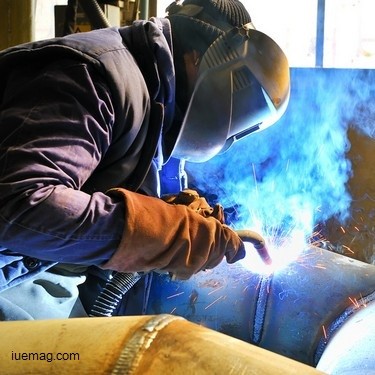

A Guide to Comprehensive Industrial Safety
In any industrial setting it is essential for employees to be trained and qualified for performing their duties. If your employees don't understand the circumstances and environment about their jobs, there is a very high chance of accidents and injuries. Even qualified employees are at risk of potential harm. This is why it is important for your workers to be regularly trained on industrial safety. In this guide, you will get some valuable tips to address different types of industrial environments.
Fire Safety
Almost every type of industrial environment will carry some level of risk of fire. It is recommended that every business should have fire safety measures and systems in place. Make sure that your workers are trained on the basic fire safety requirements.
Fire Safety
Almost every type of industrial environment will carry some level of risk of fire. It is recommended that every business should have fire safety measures and systems in place. Make sure that your workers are trained on the basic fire safety requirements.

Fire Plan – There should be a fire plan for your sites and all your employees must understand it. You can seek the services of industrial safety trainers for training your workers. A fire drill once in a while can help your employees learn about the procedures, meeting spots and the escape routes.
Handling Chemicals – All types of chemicals, combustible or not, must be kept in properly ventilated rooms. Many types of chemicals emit flammable vapours. Designate certain workers who will be the only ones to handle the chemicals and make sure that they are properly trained.
Electrical Hazards
Thousands of injuries are caused in the workplace every year, affecting productivity and disrupting health and well-being. Electrical hazards may not be the primary cause of accidents, injuries and deaths at the workplace; they are costly to the employer. Some of the most common tips suggested by industrial safety trainers for minimizing electrical shocks or accidents include:
General Industrial Safety Tips
Make sure that your workers wear general or task-based protecting equipment whenever they are delivering their duties. There should be rules of working in confined spaces. The atmosphere should be checked before entering and the isolation must be ensured. Work in a confined space must always be under supervision. This can include working in a well, container or tank.
Companies that require their staff to work on excavations must have valid work permit for each project. This should include working according to a certified map that provides information about all the underground hazards.
Similarly, if your processes require working at heights, make sure that everyone is protected by safety harnesses. Works on structures must be started only after the solidity and reliability of the structure has been verified and proper protection measures are in place. Whichever type of tasks you may need to complete in an industrial setting, it is important to seek the services of industrial safety trainers who will train your workers on a periodic basis.
Handling Chemicals – All types of chemicals, combustible or not, must be kept in properly ventilated rooms. Many types of chemicals emit flammable vapours. Designate certain workers who will be the only ones to handle the chemicals and make sure that they are properly trained.
Electrical Hazards
Thousands of injuries are caused in the workplace every year, affecting productivity and disrupting health and well-being. Electrical hazards may not be the primary cause of accidents, injuries and deaths at the workplace; they are costly to the employer. Some of the most common tips suggested by industrial safety trainers for minimizing electrical shocks or accidents include:
- Identification of electrical hazards and informing everyone through labels
- Use of proper tools for different types of tasks
- Put procedures in place that require testing all the circuits and conductors before they are touched
- All workers who come in contact with electrical equipment must wear protective clothing and use only properly insulated tools
General Industrial Safety Tips
Make sure that your workers wear general or task-based protecting equipment whenever they are delivering their duties. There should be rules of working in confined spaces. The atmosphere should be checked before entering and the isolation must be ensured. Work in a confined space must always be under supervision. This can include working in a well, container or tank.
Companies that require their staff to work on excavations must have valid work permit for each project. This should include working according to a certified map that provides information about all the underground hazards.
Similarly, if your processes require working at heights, make sure that everyone is protected by safety harnesses. Works on structures must be started only after the solidity and reliability of the structure has been verified and proper protection measures are in place. Whichever type of tasks you may need to complete in an industrial setting, it is important to seek the services of industrial safety trainers who will train your workers on a periodic basis.
Copyrights © 2026 Inspiration Unlimited - iU - Online Global Positivity Media
Any facts, figures or references stated here are made by the author & don't reflect the endorsement of iU at all times unless otherwise drafted by official staff at iU. A part [small/large] could be AI generated content at times and it's inevitable today. If you have a feedback particularly with regards to that, feel free to let us know. This article was first published here on 13th May 2015.
Want to Publish About Your Business / Achievements
Let's Discuss Right Away!

All chats are end-to-end encrypted by WhatsApp and won't be shared anywhere [won't be stored either].

